Go Big With Containers In Small Spaces! 5 Easy Hacks For Big Garden Pots In Small Gardens
The temptation with small gardens and patios is to make containers and planting ideas small – but we say go big! Try these practical hacks for beautiful big garden pots in small gardens
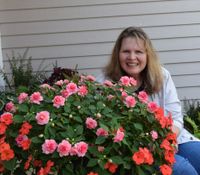
Amy Draiss
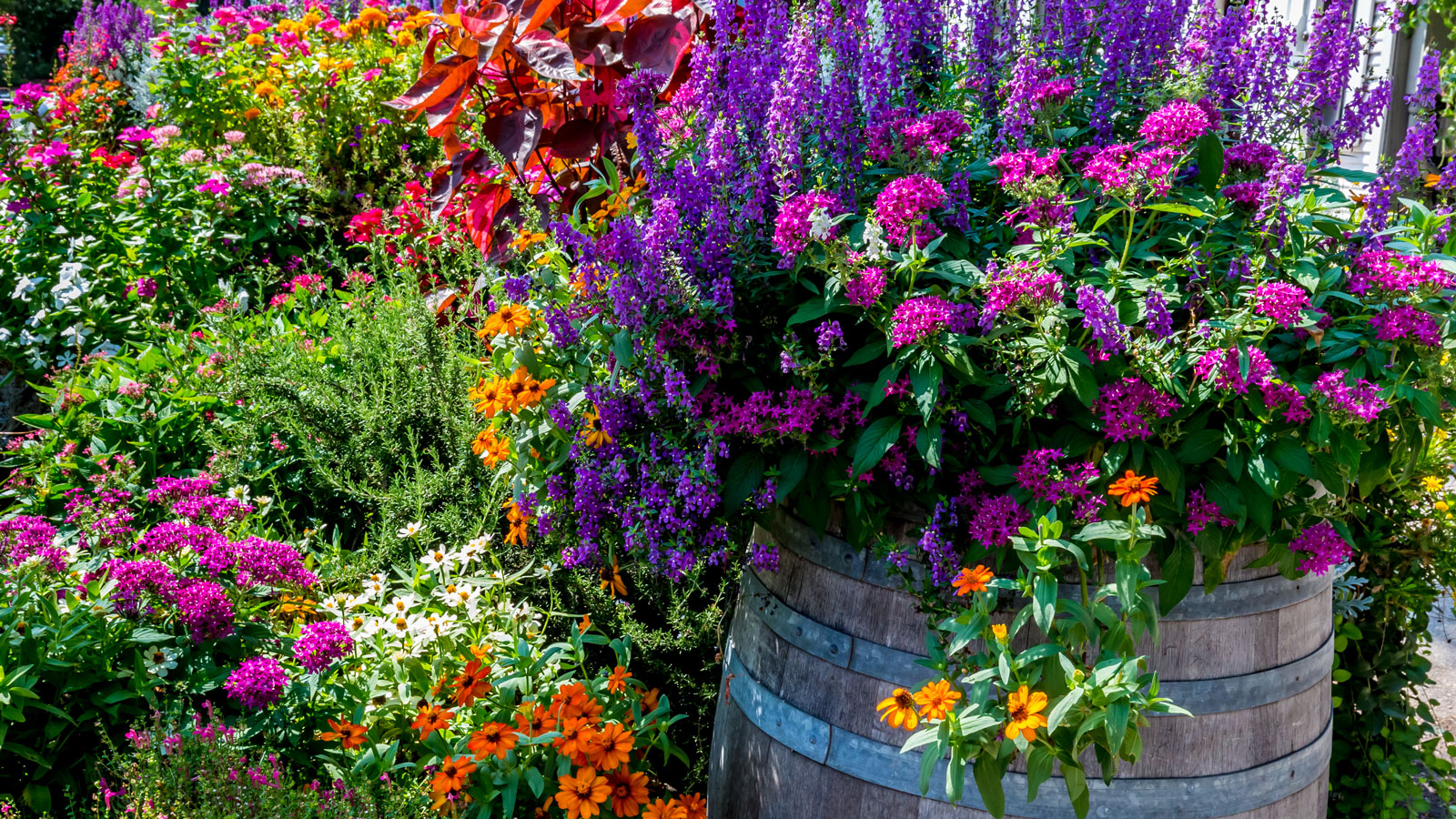
Do you have a small garden space? Are your containers all small – and are you feeling a little tentative about scaling up your planting arrangements? If so, it’s time to shed those inhibitions and supersize your small container gardening plans, pronto! Big garden pots in small gardens hold more of the plants you want to grow, and create a focal point for your space. And changing up the way you fill those big pots, and where you place them, can even help to make your garden feel bigger. No really, it’s true!
Going big does not use up your space – it can actually help to give it a cleaner, less cluttered look. It also helps you to focus on what you really want out of your garden, whether it’s a comfy backyard hideaway, a place to grow food, some creative twists on your favorite planting schemes, or a place for entertaining. Find out how easy it is to enhance the smallest gardens with these winning hacks for better container design.
Embrace Big Pot Ideas for Small Gardens
When you’re wondering how to best fill a smaller yard or growing space, it’s tempting to make everything small – plants, shrubs, trees, and containers. One of the classic temptations is to clutter your garden with a lot of small containers. Now, I’m not saying you can’t use any small containers. What this guide is about is encouraging you to think big – and go big – wherever possible, whether you’re contemplating large specimen plants for pots, a flashy mixed floral display, a grand edible pot, or all of the above! Big garden pots in small yards aren’t just possible – they are highly desirable.
It’s fine to vary container sizes – the key here is to experiment and not to feel pinned down by preconceived notions. A big pot garden in a small space is a chance to play and have some fun. Don’t let anyone tell you that you can’t ‘big up’ your container aspirations – whether that’s the plants you use, the pots you use, or the way you arrange them. To help fire up your imagination, here are a handful of big pot ideas for small gardens to help you create a truly unique growing space.
1. Don’t Be Afraid to Add Big Pots!
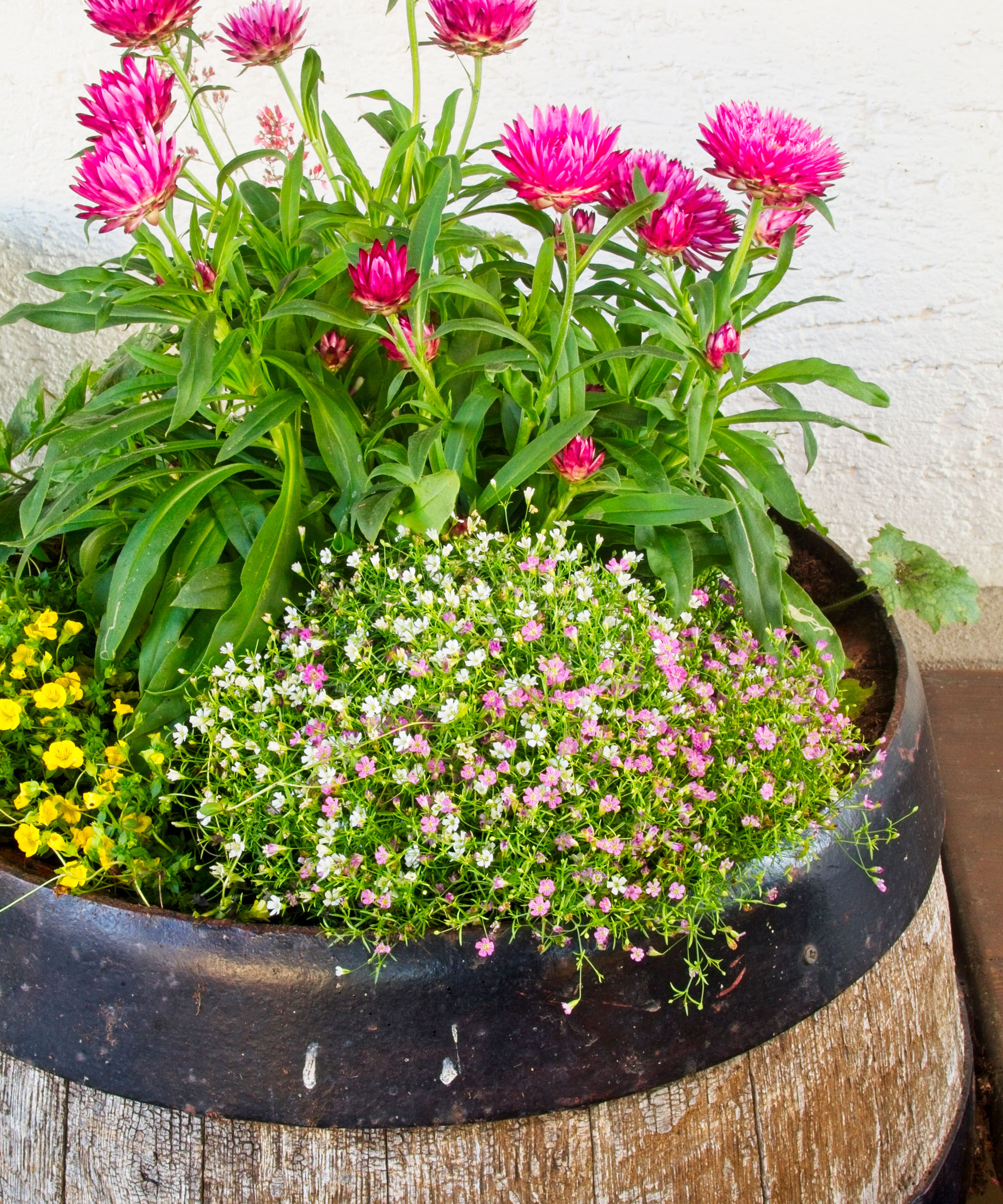
Depending on your available space, adding one to three large containers will improve the aesthetic of your garden tremendously, whether you’re aiming for a traditional or contemporary small garden style. You can add substantial plants to bigger containers, which makes any space seem larger and more lush.
The containers themselves can be as expressive or as functional as you want them to be, either blending in with an existing theme or creating a dramatic focal point. Plant choice will determine what kind of containers you need. You can find pots made from a variety of fundamental materials:
- Plastic containers: They are all-purpose, they retain water, and they are lightweight. Big plastic garden pots for small spaces are also usually reasonably priced. There is a small risk that they could blow over in high wind, however.
- Clay pots: These dry out quicker and don’t hold water so they are good for cacti and succulents, as well as Mediterranean plants such as lavender and olive trees.
- Ceramic pots: They hold more water, and they are heavier. They are available in a gorgeous array of colors and glazes. However, big options can be expensive.
- Metal containers: These are durable, and galvanized or ridged options can look attractive in modern garden schemes. However, they can heat up in the hot sun.
- Wooden planters: These are generally less expensive and you can make a planter yourself fairly easily.
If you go with a wooden option, just make sure the wood is not treated with chemicals – or if it is, use a liner. Cedar and redwood containers are more resistant to rot than other types of wood. Whiskey barrel planters are especially attractive, and highly practical. The Gardening Know How team loves the Idzo acacia wood barrel planters from Amazon.com, with their thoughtful handles.
Sign up for the Gardening Know How newsletter today and receive a free copy of our e-book "How to Grow Delicious Tomatoes".
For vegetable gardening, the pots should definitely not have held chemicals. Old wood is more likely to have been treated, such as old railroad ties.
2. Mix Up Your Container Shapes
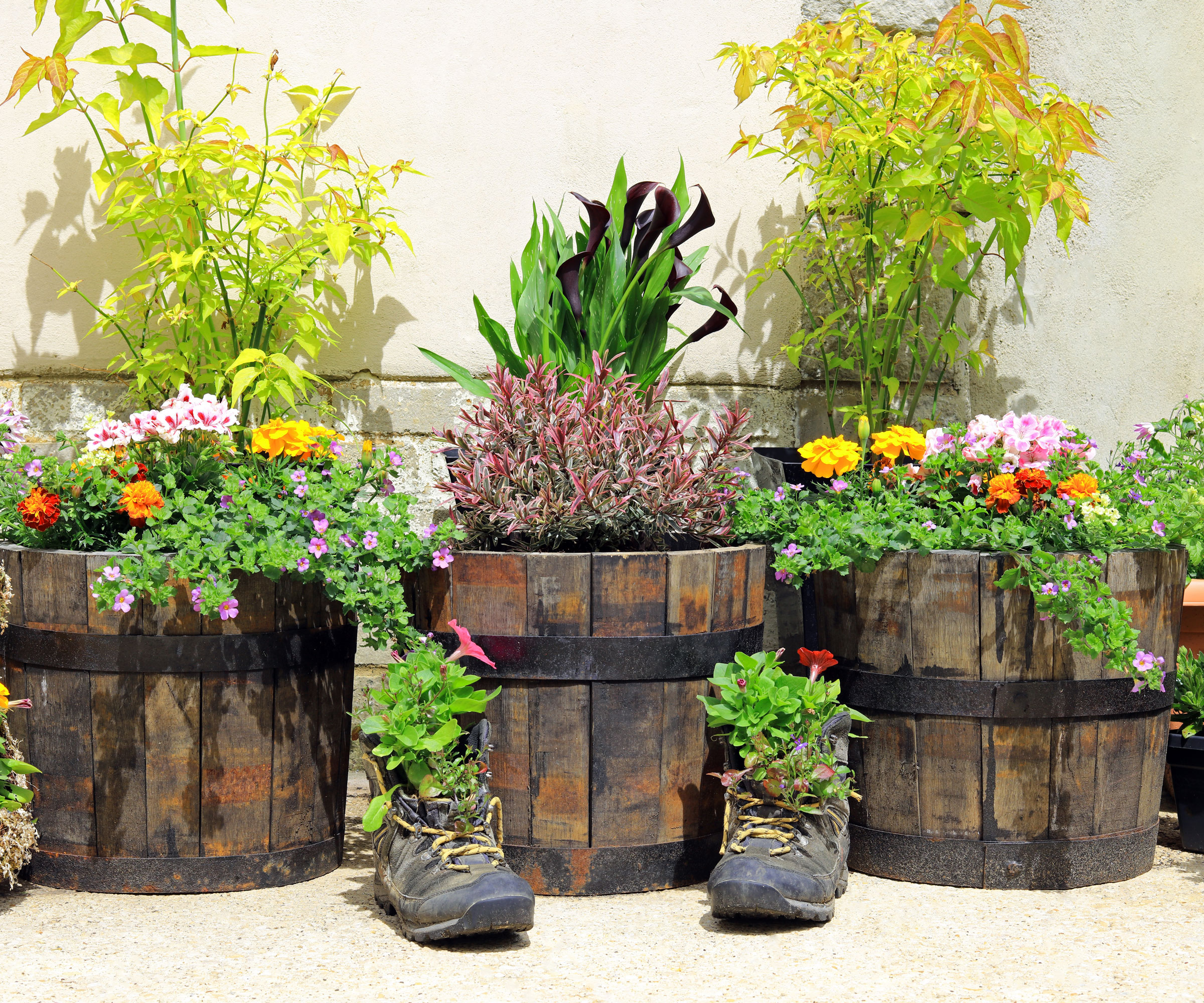
As we have said, you don’t have to use just big containers. You don’t have to buy expensive containers, either. Look around the yard, shed or garage for low-budget small garden ideas and DIY containers. Search out quirky, novel shapes and household items that are waiting for a new lease of life. Visit estate sales and garage sales for large pots or items to repurpose. Anything that holds soil is suitable as a container: an old wheel barrow, sink or watering can are good examples.
When sourcing upcycled big garden containers for small gardens, just make sure they have good drainage. You can add holes in the bottom with a small drill. In the case of a watering can, if you don’t want to make holes in it, use it as a cache. Find a slightly smaller pot with holes in it for the plant and insert it inside the watering can. Remove it when watering.
If you are going big with a shrub or tree in your container, such as a dwarf fruit tree or Japanese maple, make sure the pot is large enough to hold a mature specimen. Always plan ahead for the mature plant height and spread, especially with fruiting shrubs. Until the tree grows taller, you can surround the plant with annuals, some cascading or trailing. With the tree as the focal point, you can include a few smaller pots in a grouping. Groups of three are always good styling!
Grouping three pots of different sizes and shapes is another idea. Keeping the pots in the same color family presents a more unified look, whilst different complementary tones can help create depth along a path or fence line.
3. Grow Vertical and Add Layers
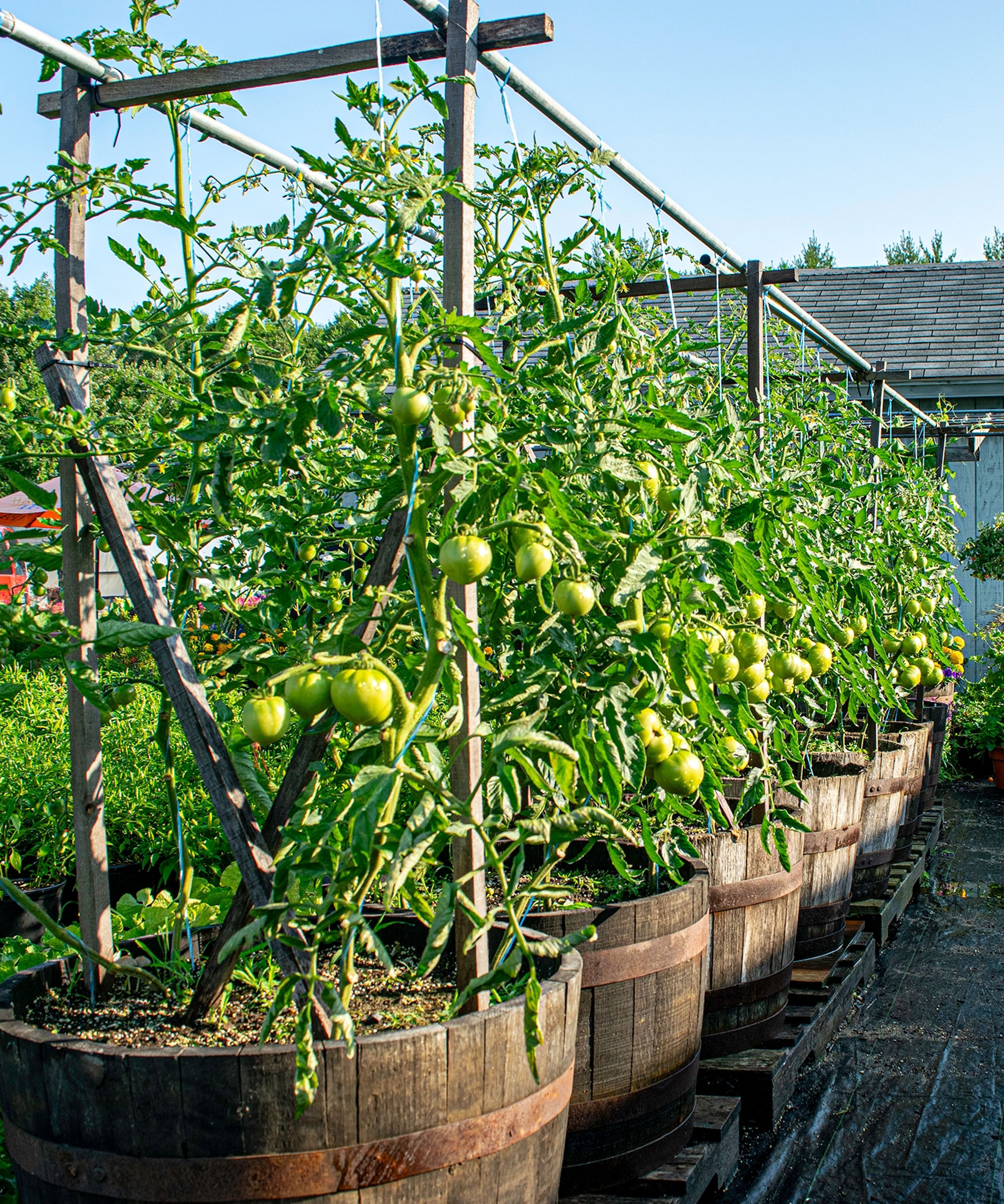
Another way to create the illusion of more space and depth is to deploy some vertical gardening options around your big garden containers – or by growing upwards with large hanging containers. Combine this with layering, which basically means planting at different heights. Vertical gardening naturally draws the eye upwards and outwards, making a small garden space seem larger (and more interesting).
Green walls are easy to create and help you garden at scale while saving space on the ground. A great option is a large 25-pocket hanging wall planter from Amazon.com, which can help to liven up a drab wall or fence. Succulents do not need constant watering, and a range of herbs and drought-tolerant perennials are also ideal for these schemes. Large 3-gallon hanging strawberry or tomato planters from Amazon are another great way to raise your edible horizons on a grand scale.
Another great vertical option for big containers is the addition of a trellis, cage or frame to help lift and support climbing plants. Try the Pro Series Pepper Eggplant Support from Burpee, easily added to large round and square pots and planters.
As well as supporting edibles like peas and beans, trellises and cages give shape and scale to flowering vines and climbing ornamentals. But if you don’t want to spend much, an old ladder works well for plant shelves.
4. Add Center Points to Create A Journey
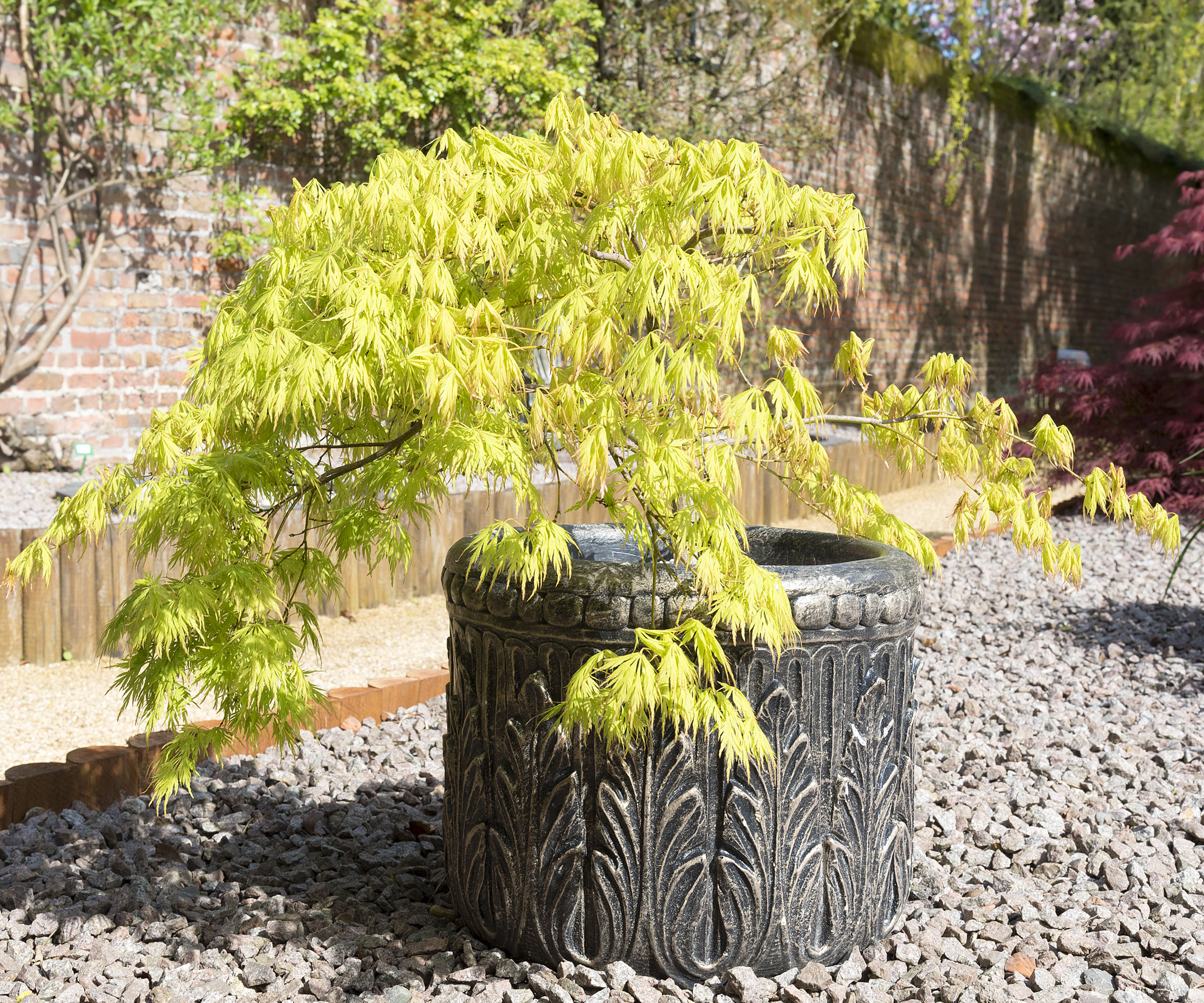
Skip the tendency to line the perimeter of the garden with containers and furniture. Similarly, don’t be tempted to place small container-based trees and shrubs only around the edges of a yard. By adding a large container in the center of the space, it draws attention to a new area. Add a curved pathway or stepping stones, and these ‘journey’ containers can make the yard or garden seem larger.
Some gorgeous specimens can be cultivated in a large focal planter. For a potted hydrangea that is both compact and sturdy, try ‘Little Lime Punch’ for a multi-toned treat. Japanese maples can also create dazzling feature plants in big pots for small gardens. Or why not try a potted fruit? Even patios can accommodate a ‘center piece’ edible. Try patio-friendly ‘Fignomenal’ Fig from Burpee for a compact stunner that is sure to wow with fruits and foliage.
It is also possible to create garden ‘nooks’ with large potted foliage plants like hostas, yuccas, fatsias and the like. Introduce a small seating area to lengthen the journey through the space. Accentuate these nooks with water features. There’s a stylish tiered rustic pump and barrel water fountain from Alpine Corporation at Amazon that adds to the playful nature of your big pot theme.
5. Combine Ornamentals and Edibles in One Pot
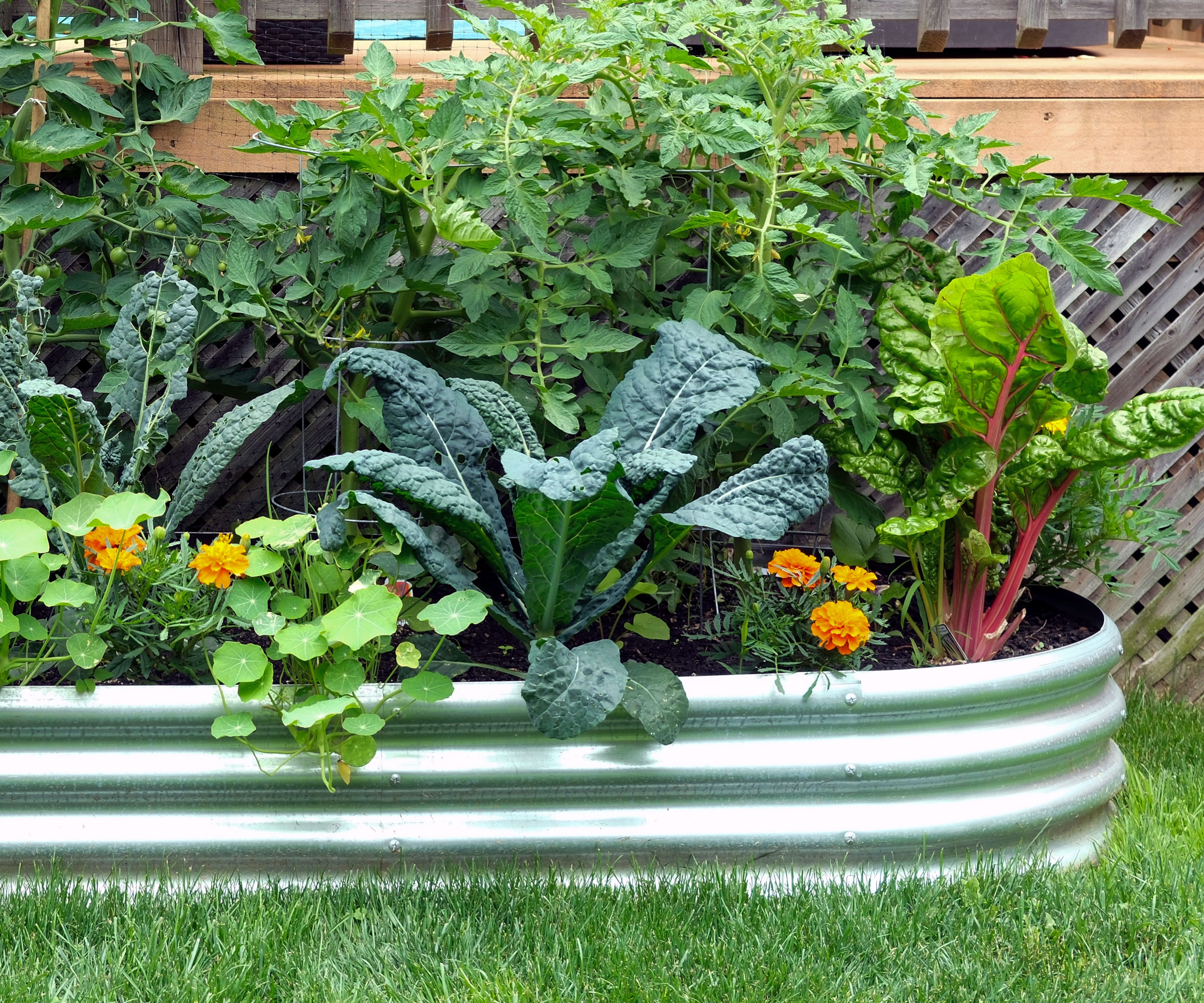
It’s easy to grow fruits and vegetables in big garden containers for small gardens – but if you haven’t thought to add some ornamentals, you’re missing a trick. Combining edibles and ornamentals takes some of the hassle out of container planning. Together, they make some of the best plants for container gardening. And if you get the combinations right, you’ll boost your plants’ productivity, vitality, flowering potential and pollinator credentials. Try these for starters:
- If you have full sun in the garden, grow tomatoes in a 5-gallon (19-liter) container (one plant). Determinant or small tomatoes like ‘Patio’, ‘Tiny Tim’, ‘Tumbling Tom’, ‘Small Fry’ or ‘Pixie’ work well. Or grow one or two peppers such as ‘Yolo Wonder’, ‘Canape’ or ‘Keystone Resistant Giant’ plants. Combine either with marigolds. These classic companions help deter pests as well as looking good. Alternatively, add a zingy pop with nasturtiums.
- In a 1-gallon (3.8-liter) pot, try growing two plants of leaf lettuce such as ‘Salad Bowl’ or ‘Romaine’. Alternatively, grow three radish plants such as ‘Cherry Belle’, ‘Scarlet Globe’ and ‘Icicle’, which is white. Either of these edible plants will partner up nicely with cosmos.
- Grow strawberries in a strawberry jar (this has pockets so the fruit dangles out) or a hanging basket. Excellent ornamentals for strawbs include yarrow (achillea) and borage, as well as flowering chamomile.
- Herbs can fit neatly together with ornamentals, allowing you to mix and match texture and color, as well as potential for beneficial insects and pollinators. Try matching pretty blue-flowered borage and bronze fennel with pink coneflowers. Or try parsley and pansies for a beneficial pairing in a pot.
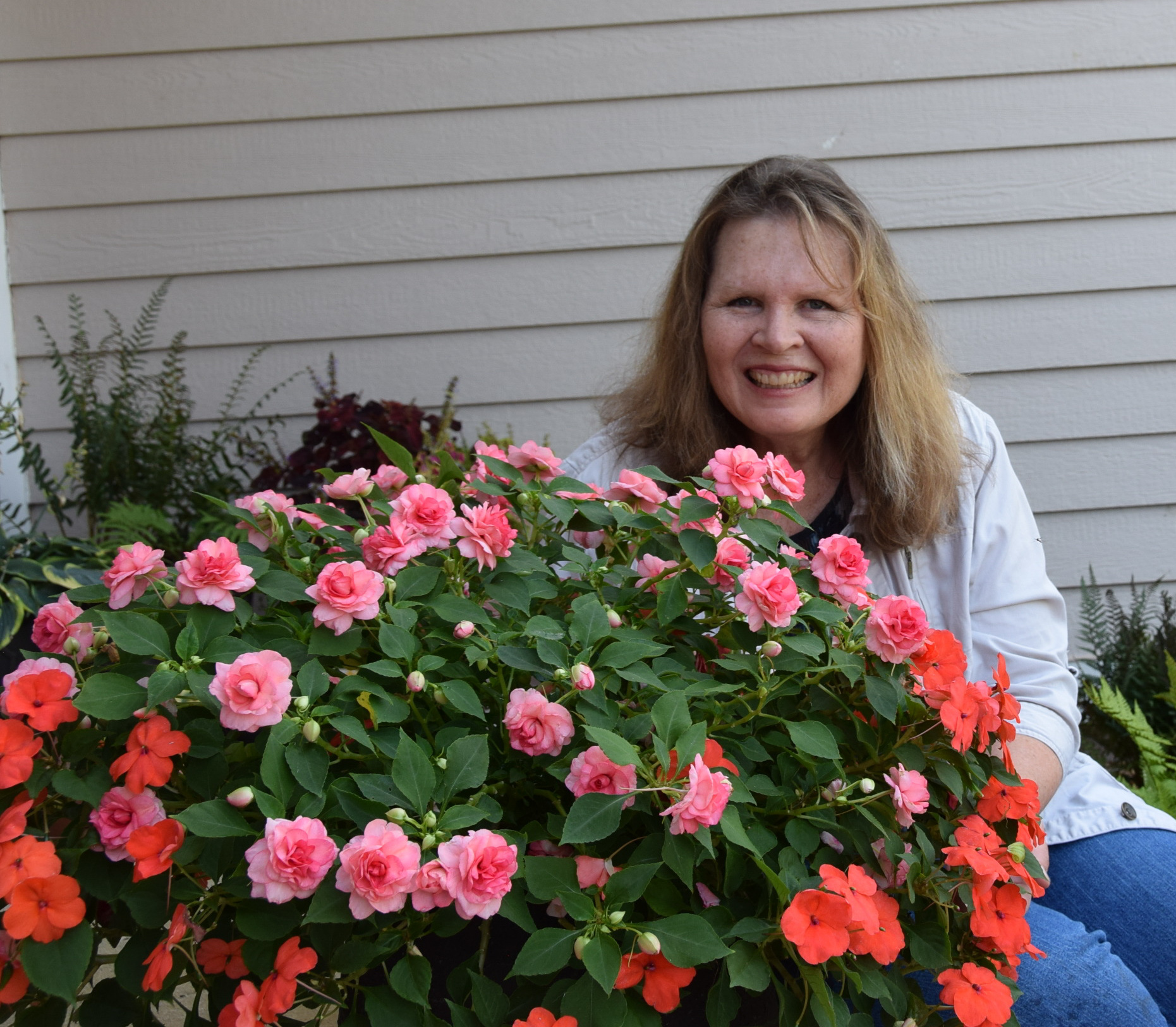
After graduating from Oklahoma State University with a degree in English, Susan pursued a career in communications. In addition, she wrote garden articles for magazines and authored a newspaper gardening column for many years. She contributed South-Central regional gardening columns for four years to Lowes.com. While living in Oklahoma, she served as a master gardener for 17 years.
- Amy DraissDigital Community Manager